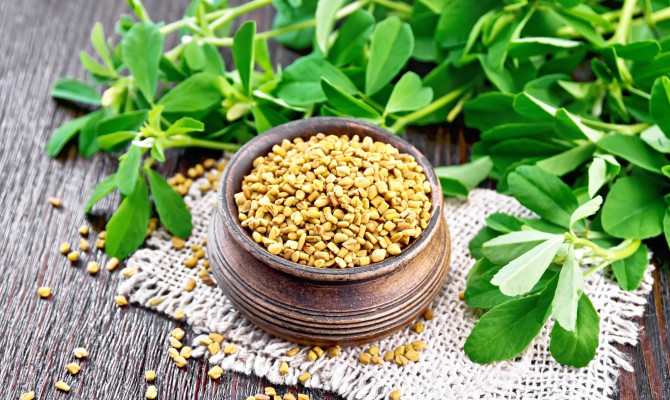Glucosamine: Sources, significance, and side effects

- Glucosamine
- 16 Aug 2023
Overview
What is Glucosamine?
Glucosamine is the amino acid naturally found in our body. Amino acids are substances that combine to form proteins in the body. Glucosamine chiefly maintains the cartilage (connective tissue) within the joints.

Facts
Facts about Glucosamine
- Glucosamine is found in both human and animal tissues
- It is produced from glucose in every tissue of the body
- It is mostly found in cartilage and connective tissue
- It is essential for the glycosaminoglycan(complex carbohydrate on the cell surface) and glycoprotein (a compound containing carbohydrate and protein)synthesis in our body
- Glucosamine is extracted from the crabs, lobster, and prawns as well as shellfish’s exoskeleton for commercial purposes
- Glucosamine supplements are available in tablet form to treat the joint problem 1 Facts | Researched based study from Sciencedirect.com , 2 Facts | Researched based study from Nlm.nih.gov .
- There is no natural food source containing glucosamine. But one can avail of glucosamine from lobster, shellfish, and shrimp supplements. 3 Facts | Researched based study from Sciencedirect.com .
Biological role
Biological Role of Glucosamine
- Glucosamine helps in making glycoprotein and glycosaminoglycan needed for the construction and restoration of cartilage, ligament (connect bone to bone), tendon (connective tissue joining muscle to bone), and synovial fluid (lubricates the cartilage).
- Glucosamine in the body decreases with age and leads to joint pain 3 Biological role | Researched based study from Sciencedirect.com .
Significance

Significance of Glucosamine
Enhances joint health
- Glucosamine maintains the white connective tissue (articular cartilage) that covers the bone ends where they form joints. Articular cartilage, and the synovial fluid in the joint space, decrease resistance and allow easy joint movement.
- Glucosamine also helps in collagen formation and is the vital structural component of the synovial fluid and the cartilage.
- Glucosamine prevents cartilage breakdown.
Decreases inflammation
- Glucosamine, when used with chondroitin supplement, decreases the level of the body’s C-reactive protein (CRP)Chondroitin is a natural component in joint cartilage that helps maintain strong cartilage.C-reactive protein (CRP) is a liver protein that increases during bodily injury.
- It lowers the risk of inflammatory-mediated conditions such as type 2 diabetes(high sugar level in the body)
However, more research is required to prove this fact 4 Significance | Researched based study from Nlm.nih.gov , 5 Significance | Researched based study from Nlm.nih.gov
Treats bone disorders
- Glucosamine supplements reduce pain in osteoarthritis patients
- It maintains the joint space
- It inhibits the disease progression
However, more research is wanted to prove its effects 6 Significance | Researched based study from Nlm.nih.gov
Treats temporomandibular joint disorder
- The temporomandibular joint disorder causes pain in the jaw(mouth) joint and jaw muscles.
- Glucosamine and chondroitin supplements taken together decreased the jaw pain and improve the jaw movement
However, more studies are required to prove its efficiency 7 Significance | Researched based study from Nlm.nih.gov
Treats inflammatory bowel syndrome
- Inflammatory bowel syndrome is the long-term swelling and redness of the intestine with stomach gas, pain, and watery stool (diarrhea)
- Glucosamine supplements reduces the symptoms of inflammatory bowel syndrome 8 Significance | Researched based study from Naturalmedicinejournal.com
Glaucoma
- Glaucoma is an eye disease that attacks the optic nerve and causes blindness.
- The optic nerve is present at the back of our eyes and transfers visual information from the brain to the eyes that, enable one to see
- Glucosamine decreases inflammation and prevents cell damage to the retina 9 Significance | Researched based study from Nlm.nih.gov
Multiple sclerosis
- Multiple sclerosis is a condition of the brain and the spinal cord in which the immune system damages the healthy cells of our body, viz, myelin sheath covering the nerve fiber.
- Multiple sclerosis causes communication difficulties between the brain and other body parts and leads to problems in walking, talking, etc. Glucosamine helps in myelin repair of multiple sclerosis disease However, there is limited research to support the fact 10 Significance | Researched based study from Jamanetwork.com
Interstitial cystitis
- Interstitial cystitis is a long-term bladder problem causing pain and discomfort in the bladder and pelvic(hip) area. It is caused due to deficiency of glucosaminoglycan naturally, our body converts Glucosamine to glucose aminoglycan so taking glucosamine supplements helps treat interstitial cystitis 11 Significance | Researched based study from Nlm.nih.gov
Treats cancer
- Cancer is the uncontrolled growth of body cells glucosamine inhibits the abnormal cell growth
- Glucosamine and chondroitin, when taken together reduces the threat of colorectal cancer. In colorectal cancer, there is an abnormal growth in the inner colon lining (the longest part of the large intestine) 12 Significance | Researched based study from Nlm.nih.gov
Precautions
Who shouldn’t consume glucosamine?
People with the following condition should refrain from taking Glucosamine
- Diabetes (high blood sugar)
- Hypertension(high blood pressure)
- Hypercholesterolemia (High blood cholesterol)
- Chronic kidney disease
- Hepatitis(Swelling of the liver due to viral infection)
- Cancer (abnormal cell growth)
- Asthma (lung disease causing breathing difficulty)
- Coronary heart disease (blood flow issue due to wax deposition in the blood vessels)
- Allergic (sensitivity reaction) to shellfish
- Family history of glaucoma(an eye disease that attacks the optic nerve and causes vision loss)
- Pregnant and nursing mothers (due to lack of evidence on its safety) 13 Precautions | Researched based study from Nlm.nih.gov
Dosage
Dosage of Glucosamine
The usual dose of Glucosamine is 1500-3000 mg daily, which can be taken as one single dose or as a smaller dose 3 to 4 times a day.
Forms of Glucosamine supplements
There are three forms of glucose supplements available commercially, viz;
- Glucosamine hydrochloride
- Glucosamine Sulfate
- N-acetyl Glucosamine
People consuming Glucosamine Sulfate supplements have been found to relieve their osteoarthritis pain 14 Dosage | Researched based study from Nlm.nih.gov ,15 Dosage | Researched based study from Nlm.nih.gov
Deficiency
Glucosamine Deficiency
The leading cause of glucosamine deficiency is the person’s growing age, which is generally unavoidable.
Glucosamine deficiency symptoms
- Severe joint pain
- Joint stiffness
- Muscle stiffness
- Muscle weakness
- Loss of muscle fiber
- Bone breakage
Side effects
Side effects of Glucosamine
- Stomach pain
- Heartburn
- Diarrhea (watery stool)
- Constipation (difficulty in clearing bowels)
- Stomach gas (bloating)
- Nausea and vomiting
- Sleepiness
- Headache
- Skin rashes
- Itching
- Swelling of the face 16 Side effects| Researched based study from Nlm.nih.gov
Interactions
Interactions of Glucosamine
Non-steroidal anti-inflammatory drugs (NSAIDs)
Taking Glucosamine and NSAID together
- It increases the anti-inflammatory effects of NSAIDS
- It can cause abdominal bleeding
Coumadin
Taking Glucosamine and coumadin together
- It increases the anti-platelet effect of coumadin
- It can lead to profuse bleeding
Cancer medicines
Taking Glucosamine with cancer medicines
- It increases the cell growth and reduces the impact of the drug
Antidiabetic medicines
Taking glucosamine and antidiabetic medicines
- It increases the blood sugar level
- It decreases the effectiveness of the drug
Acetaminophen medicines
- Taking Glucosamine and acetaminophen impacts the effectiveness of the drug.
Some other drugs that interact with Glucosamine
Glucosamine might lower the effectiveness of the following medicines-
- Cerubidine
- Novantrone
- Vepesid
- Vumon
- Adriamycin17Interactions | Researched based study from Nlm.nih.gov
Takeaway
Key Takeaways
- Glucosamine is an essential compound in our body for maintaining strong joints.
- Glucosamine supplements are available commercially and are used to treat various conditions of bone and joints.
- Glucosamine is safe for most people when taken in appropriate doses without health conditions.
- More research is warranted to support its evidence in treating prolonged osteoarthritis symptoms.
- One should consult a registered healthcare professional before starting a glucosamine tablet or supplement for any treatment.
Any feedback on this article?
 This Articles content was accurate
This Articles content was accurate Very Informative Article
Very Informative Article I have a question or a comment
I have a question or a comment
 This article contains inaccurate content
This article contains inaccurate content This article was not helpful
This article was not helpful I have a question or a comment
I have a question or a comment
We appreciate your helpful feedback!
Checkout our social pages
References
-
Science direct
A review on the effects of glucosamine for knee osteoarthritis based on human and animal studies | Facts
-
National Library of Medicine
Effects of Glucosamine and Chondroitin Sulfate on Cartilage Metabolism in OA: Outlook on Other Nutrient Partners Especially Omega-3 Fatty Acids | Facts
-
Science direct
Glucosamine | Facts | Sources
-
National Library of Medicine
Randomized trial of glucosamine and chondroitin supplementation on inflammation and oxidative stress biomarkers and plasma proteomics profiles in healthy humans
-
National Library of Medicine
Glucosamine Use, Inflammation, and Genetic Susceptibility, and Incidence of Type 2 Diabetes: A Prospective Study in UK Biobank | Significance
-
National Library of Medicine
Symptomatic Efficacy of Pharmacological Treatments for Knee Osteoarthritis: A Systematic Review and a Network Meta-Analysis with a 6-Month Time Horizon | Significance
-
National Library of Medicine
Effects of glucosamine-chondroitin combination on synovial fluid IL-1β, IL-6, TNF-α and PGE2 levels in internal derangements of temporomandibular joint | Significance
-
Natural Medicine Journal
N-Acetylglucosamine for Treatment of Inflammatory Bowel Disease | Significance
-
National Library of Medicine
Protective effects of glucosamine on oxidative-stress and ischemia/reperfusion-induced retinal injury | Significance
-
JAMA network
Association of a Marker of N-Acetylglucosamine With Progressive Multiple Sclerosis and Neurodegeneration | Significance
-
National Library of Medicine
Treatment of refractory interstitial cystitis/painful bladder syndrome with CystoProtek--an oral multi-agent natural supplement | Significance
-
National Library of Medicine
Glucosamine Use and Risk of Colorectal Cancer: Results from the Cancer Prevention Study II Nutrition Cohort | Significance
-
National Library of Medicine
Glaucoma history and risk factors
-
National Library of Medicine
D-Glucosamine | Dosage
-
National Library of Medicine
Glucosamine and Chondroitin Use in Relation to C-Reactive Protein Concentration: Results by Supplement Form, Formulation, and Dose
-
National Library of Medicine
Glucosamine Sulfate | Side effects
-
National Library of Medicine
Potential glucosamine-warfarin interaction resulting in increased international normalized ratio: case report and review of the literature and MedWatch database | Interactions





































